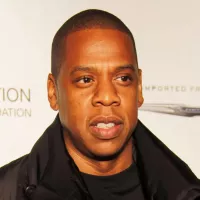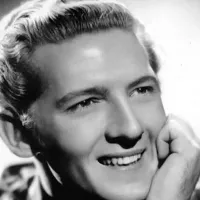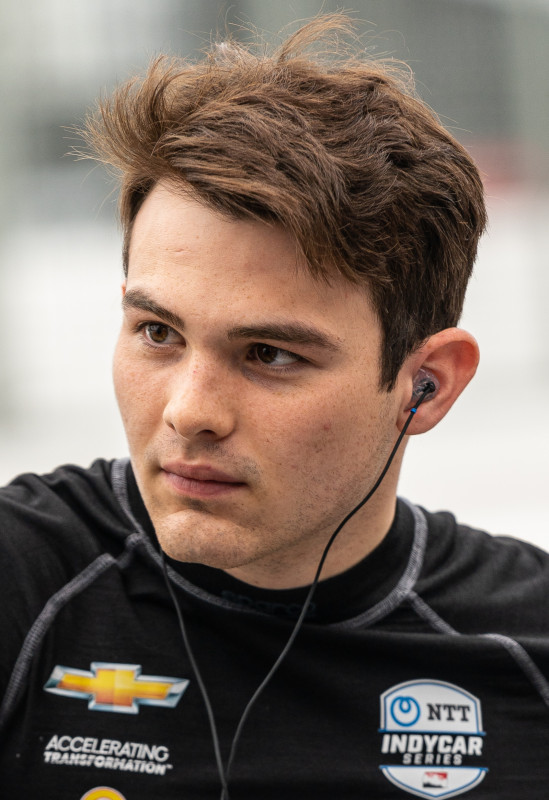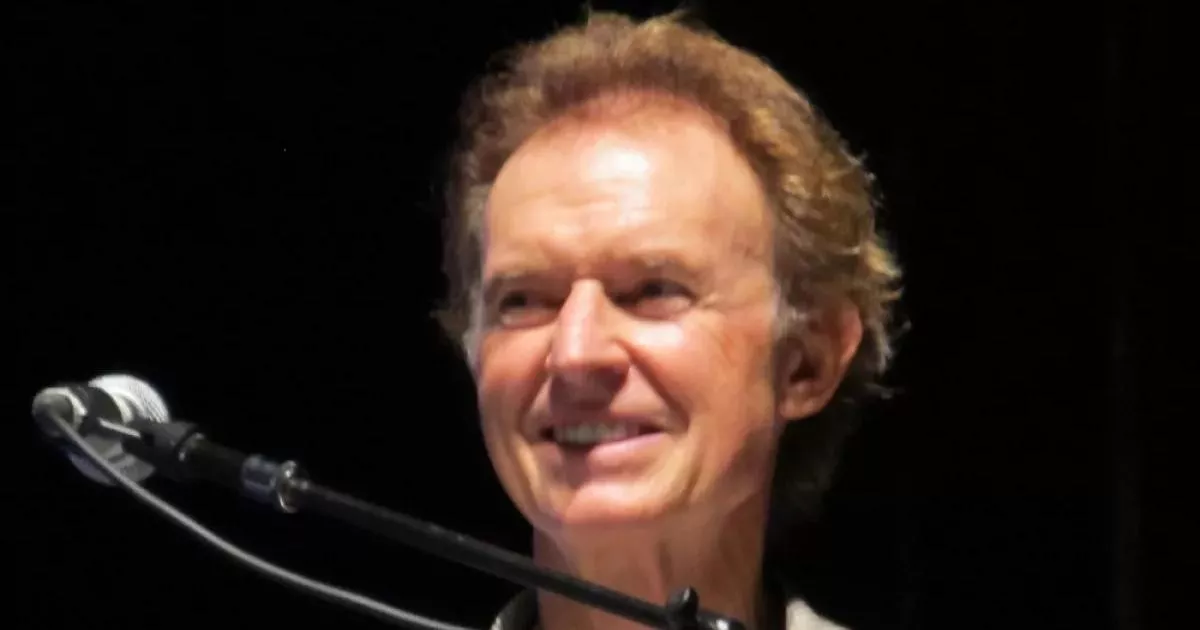Gary Wright was an American musician known for his 1976 hits "Dream Weaver" and "Love Is Alive". He gained recognition after spending time in London, playing with the band Spooky Tooth and as a solo artist. His breakthrough album, "The Dream Weaver" (1975), showcased his unique style influenced by his friendship with George Harrison and incorporating Indian religious themes. While his later work explored world music and new age genres, none reached the same level of success as his 1970s hits.
April 26, 1943: Birth of Gary Wright
On April 26, 1943, Gary Malcolm Wright was born. He would become a prominent figure in the music industry, recognized for his hit songs and influence on various genres.
1954: Broadway Debut in "Fanny"
At the age of seven, Gary Wright began his career as a child actor, making his TV debut. In 1954, he landed a role in the Broadway production of the musical "Fanny," sharing the stage with Florence Henderson.
1959: First Commercial Recording
Gary Wright's musical journey continued in 1959 when he made his first commercial recording with Billy Markle.
1960: Release of "Working After School"
In 1960, the single "Working After School," credited to Gary & Billy, was released on 20th Century Fox Records, marking an early step in Wright's musical career.
1962: Release of "Midnight Joey" by Lorna Dune
In 1962, Gary Wright's sister, Lorna Dune, released the song "Midnight Joey." The song was conceived as an answer song to Joey Powers' hit "Midnight Mary."
1966: Psychology Studies in Berlin and Decision to Leave Academia
Gary Wright, pursuing a path in medicine and psychology, went to West Germany in 1966 to continue his studies at the Free University of Berlin. However, within a year, he made the life-changing decision to leave academia and dedicate himself fully to music.
1967: Meeting Chris Blackwell and Shift to Music Career
While touring Europe in 1967, Gary Wright made a pivotal decision to fully pursue music, abandoning his medical aspirations. During this time, he crossed paths with Chris Blackwell, founder of Island Records, marking a significant turning point in his journey.
June 1968: Release of Spooky Tooth's Debut Album "It's All About"
Spooky Tooth, under the Island Records label, released their debut album "It's All About" in June 1968. The album featured songwriting contributions from Wright and marked the band's entry into the music scene.
March 1969: Release of Spooky Tooth's Album "Spooky Two"
Spooky Tooth released their album "Spooky Two" in March 1969, featuring significant songwriting contributions from Gary Wright. The album is highly regarded by fans and critics and is considered one of their best works.
December 1969: Release of "Ceremony" - A Collaboration with Pierre Henry
In December 1969, Spooky Tooth released "Ceremony," an experimental album created in collaboration with French electronic music pioneer Pierre Henry. The album featured a unique blend of Spooky Tooth's sound and Henry's musique concrète overdubs.
1969: Spooky Tooth's Popularity in West Germany
Gary Wright revealed that Spooky Tooth had achieved immense popularity in West Germany during 1969, becoming a top band in the country.
1969: Release of "Spooky Two" with Spooky Tooth
Gary Wright, as a member of the band Spooky Tooth, contributed to the release of their album "Spooky Two" in 1969. The album is often regarded as one of their best works.
1969: Greg Ridley Leaves Spooky Tooth
Prior to Wright's departure, Spooky Tooth experienced a lineup change in 1969 when bass player Greg Ridley left the band to join Humble Pie.
January 1970: Departure from Spooky Tooth and Pursuit of Solo Career
In January 1970, Gary Wright decided to leave Spooky Tooth to focus on his solo career. This move allowed him to explore his own musical ideas and set him on a new path.
1970: Spooky Tooth's Rising Stature
By 1970, Spooky Tooth had gained significant recognition in the music industry, drawing comparisons to influential bands like the Yardbirds and the Move.
1970: Signing with A&M Records and Release of "Extraction"
Gary Wright embarked on his solo career, signing with A&M Records and releasing his debut solo album, "Extraction," in 1970. The album, recorded in London with notable musicians, marked the beginning of his solo endeavors.
1970: Playing Piano on George Harrison's "All Things Must Pass" and Formation of Friendship
Gary Wright's contribution to George Harrison's iconic 1970 triple album "All Things Must Pass" as a keyboardist not only showcased his musical talent but also marked the beginning of a deep and lasting friendship with Harrison.
1970: Collaboration with George Harrison on "All Things Must Pass"
Gary Wright's musical journey took a significant turn in 1970 when he played keyboards on George Harrison's album "All Things Must Pass." This collaboration sparked a lifelong friendship and influenced Wright's musical direction.
April 1971: Formation of Wonderwheel
In April 1971, Gary Wright formed the band Wonderwheel to promote his album "Extraction." The initial lineup included guitarist Jerry Donahue (later replaced by Mick Jones), bassist Archie Legget, and drummer Bryson Graham.
November 1971: Performance on The Dick Cavett Show
Gary Wright and Wonderwheel appeared on "The Dick Cavett Show" in November 1971, performing "Two Faced Man" with George Harrison on slide guitar.
1971: Collaboration with B.B. King
Gary Wright collaborated with B.B. King on the album "B.B. King in London" in 1971, contributing his composition "Wet Hayshark."
1971: Co-writing "To Discover Yourself" with George Harrison
In 1971, Gary Wright and George Harrison collaborated on the songwriting of "To Discover Yourself."
1971: Release of Solo Album "Footprint" and Formation of Wonderwheel
In 1971, Gary Wright released his solo album "Footprint," which featured contributions from George Harrison. He also formed the short-lived band Wonderwheel during this time.
1971: Session Musician for Ex-Beatles and Collaborators
In 1971, Gary Wright showcased his musical talents by playing on various recordings for artists associated with the Beatles. He contributed to hit singles like Ringo Starr's "It Don't Come Easy" and "Back Off Boogaloo," as well as Ronnie Spector's comeback single, "Try Some, Buy Some."
September 1972: Disbanding Wonderwheel and Reforming Spooky Tooth
Gary Wright made the decision to disband Wonderwheel and re-form Spooky Tooth in September 1972.
1972: Work on "Ring of Changes" and Soundtrack for "Benjamin"
Gary Wright moved to Devon with Wonderwheel in 1972 to work on their album "Ring of Changes." He also wrote the soundtrack for Willy Bogner's film "Benjamin," releasing "Goodbye Sunday" as a single.
1972: Piano on Harry Nilsson's "Without You"
Showcasing his versatility, Gary Wright played piano on Harry Nilsson's hit song "Without You" in 1972.
November 1973: Release of "Witness"
Spooky Tooth released their album "Witness" in November 1973, marking the return of drummer Mike Kellie to the band.
1973: Sessions for Harrison's "Living in the Material World"
Gary Wright participated in recording sessions for George Harrison's acclaimed album "Living in the Material World" in 1973.
1973: Sessions with Jerry Lee Lewis
Gary Wright participated in recording sessions with Jerry Lee Lewis, which were later released as the double album "The Session" in 1973.
1973: Reflection on Spooky Tooth's Musical Direction
In 1973, Gary Wright reflected on Spooky Tooth's musical journey, expressing some regrets about their collaboration with Pierre Henry on the album "Ceremony." He felt the band had strayed from their path after the success of "Spooky Two."
1973: Release of "You Broke My Heart So I Busted Your Jaw" and Reflection on "Ceremony"
Spooky Tooth, Gary Wright's band, released "You Broke My Heart So I Busted Your Jaw" in 1973. That same year, Wright expressed regrets about the band's musical direction on their 1969 album "Ceremony," a collaboration with Pierre Henry.
February 1974: Departures from Spooky Tooth
By February 1974, both Greg Ridley and Mick Jones had left Spooky Tooth.
October 1974: Release of "The Mirror" and Spooky Tooth's Disbandment
Spooky Tooth released their final album, "The Mirror," in October 1974, with Mike Patto as their new vocalist. Shortly after the album's release, Gary Wright disbanded the group.
1974: Release of "Benjamin" Soundtrack Album
The full soundtrack album for the film "Benjamin," recorded by Gary Wright with Wonderwheel members, was released by Ariola Records in 1974.
July 1975: Release of "The Dream Weaver"
Gary Wright's album "The Dream Weaver" was released in July 1975.
1975: Release of "The Dream Weaver" Album
Gary Wright released his breakthrough album, "The Dream Weaver," in 1975. This album marked a turning point in his career, establishing his unique sound and propelling him to fame.
March 1976: "Dream Weaver" Achieves Gold Certification
Gary Wright's hit single "Dream Weaver" was certified Gold by the RIAA in March 1976, signifying sales of over one million copies.
1976: Start of Recording "The Light of Smiles"
Gary Wright commenced the recording of his album "The Light of Smiles" in the summer of 1976. The album was said to be a continuation of the musical style of his previous work, heavily featuring keyboard instruments.
1976: Release of "Dream Weaver" and "Love Is Alive"
In 1976, Gary Wright achieved mainstream success with the release of his hit songs "Dream Weaver" and "Love Is Alive," solidifying his place in music history.
1976: Success of "The Dream Weaver"
In 1976, Gary Wright commented on the surprising success of his album "The Dream Weaver," which had exceeded expectations and gained significant popularity.
1976: US Bicentennial Concert and European Tour
In 1976, Gary Wright performed at the US Bicentennial concert in Philadelphia alongside Yes and Peter Frampton, drawing a massive crowd of 120,000 attendees. He then embarked on a European tour supporting Frampton, expanding his band to include a fourth keyboard player. This period marked a successful time for Wright, with the release of his compilation album "That Was Only Yesterday."
January 1977: Release of "The Light of Smiles" and "Phantom Writer"
Produced by Wright himself, "The Light of Smiles" featured a wide array of keyboard instruments and included contributions from several musicians. However, despite reaching number 23 on the US Billboard charts, neither the album nor its lead single, "Phantom Writer" which peaked at number 43, achieved the same level of success as his previous releases.
1977: Release of "The Light of Smiles"
"The Light of Smiles," Gary Wright's follow-up album to "The Dream Weaver," was released in 1977. Notably, the album included the track "I Am the Sky," which drew inspiration from the works of Indian guru Paramahansa Yogananda.
1977: Release of "Touch and Gone"
In late 1977, Gary Wright released the album "Touch and Gone," featuring the title track that climbed to number 73 on the charts. The album, while achieving some success, marked the start of a period of limited commercial success for Wright.
1978: Collaboration with George Harrison
On New Year's Day 1978, Gary Wright collaborated with George Harrison in England, co-writing the song "If You Believe." This track was later featured on Harrison's self-titled album released in 1979.
1979: Release of "Headin' Home"
Gary Wright released the album "Headin' Home" in 1979. The album is noted for its reflection of a tumultuous period in Wright's personal life, according to music critics.
1981: Continued Recording with Limited Success
Despite releasing albums until 1981, Gary Wright experienced limited commercial success during this period. His musical endeavors continued, but his chart performance waned.
1981: Release of "The Right Place" and "Really Wanna Know You"
Gary Wright's album "The Right Place," co-produced with Dean Parks, achieved commercial success in 1981, reaching number 79 on the charts. This success was fueled by the single "Really Wanna Know You," a collaboration with Scottish singer Ali Thomson, which peaked at number 16, marking a resurgence in Wright's career after a period of limited success.
1982: Soundtrack for "Endangered Species"
Gary Wright composed the score for Alan Rudolph's thriller "Endangered Species" in 1982, marking a shift in his career towards film soundtracks.
1984: Chaka Khan Covers "Love Is Alive"
Chaka Khan's rendition of Gary Wright's "Love Is Alive," retitled "My Love Is Alive," was released in 1984 as part of her album "I Feel for You." The album achieved platinum status, demonstrating the enduring appeal of Wright's songwriting.
1985: Marriage to Rose
Gary Wright married his wife, Rose, in 1985.
1987: Contribution to George Harrison's "Cloud Nine"
Gary Wright collaborated with George Harrison on his 1987 album "Cloud Nine." Wright co-wrote the track "That's What It Takes" with Harrison and Jeff Lynne, and contributed his keyboard skills to other songs on the album, including "When We Was Fab." This collaboration highlighted his ongoing musical partnership with Harrison.
1987: Contribution to "North Shore" Soundtrack
In 1987, Gary Wright contributed the song "Am I the One" to the soundtrack of the surf movie "North Shore," showcasing his versatility in composing music for various film genres.
1988: Release of "Who I Am" and "Blind Alley" in "Spellbinder"
Gary Wright released the album "Who I Am" in 1988. The album featured a diverse range of musicians, including notable figures like George Harrison, Nicky Hopkins, Jim Keltner, and Indian classical violinists L. Subramaniam and L. Shankar. The track "Blind Alley" from the album was featured in the horror film "Spellbinder."
1989: Recording "Never Give Up" with George Harrison
Gary Wright and George Harrison collaborated on the recording of the song "Never Give Up" in 1989.
1989: Sampling in Hip-hop Music
Starting in 1989, Gary Wright's music found a new audience as his songs were sampled by prominent rap and hip-hop artists. Tracks like "Dream Weaver," "Love Is Alive," and "Can't Find the Judge" were incorporated into works by artists such as Tone Lōc, Dream Warriors, 3rd Bass, and Mýa, marking his influence on a new generation of musicians.
1990: Judas Priest Controversy
In 1990, a cover version of Spooky Tooth's "Better By You, Better Than Me" by Judas Priest became embroiled in a legal battle concerning subliminal messages in music. This case, stemming from a tragic suicide pact by two teenagers in 1985, highlighted the impact and interpretation of music in society.
1992: "Dream Weaver" in "Wayne's World"
Gary Wright re-recorded his hit song "Dream Weaver" for the 1992 comedy film "Wayne's World." This rendition was included in the movie's soundtrack, which topped the charts, introducing his music to a new generation of fans.
1995: Release of "First Signs of Life"
In 1995, Gary Wright released the album "First Signs of Life," recorded in Rio de Janeiro and Los Angeles. This album marked a departure from his previous work, incorporating Brazilian rhythms and African vocal influences, resulting in a world music fusion.
1996: "Dream Weaver" in "The People vs. Larry Flynt"
Wright's iconic song "Dream Weaver" continued to be featured in films, with its inclusion in the 1996 biographical drama "The People vs. Larry Flynt," further cementing its place in popular culture.
1998: Release of "Best of Gary Wright: The Dream Weaver"
A compilation album titled "Best of Gary Wright: The Dream Weaver" was released in 1998, spanning Gary Wright's solo career from 1970 onward. The album featured liner notes written by Wright himself and included the song "Don't Try to Own Me," co-written with Duane Hitchings.
1999: Release of "Human Love"
The album "Human Love" was released in 1999, featuring new renditions of Gary Wright's previous songs like "Wildfire" and "The Wrong Time." The album also included the track "If You Believe in Heaven," a collaboration with Graham Gouldman, which had been previously released on the "Best of Gary Wright" compilation.
2000: "We Can Fly" for "Ski to the Max"
In October 2000, Gary Wright's song "We Can Fly" was featured in Willy Bogner's IMAX film "Ski to the Max," showcasing his continued involvement in film soundtracks.
November 2001: Recording "To Discover Yourself"
On the day of George Harrison's passing in November 2001, Gary Wright recorded the song "To Discover Yourself," a collaborative piece he had written with Harrison in 1971.
2001: End of Musical Association with George Harrison
Gary Wright's musical association with George Harrison, which had spanned decades, came to an end in 2001, shortly before Harrison's passing.
2004: Spooky Tooth Reunion Tour
Gary Wright rejoined his former bandmates for a Spooky Tooth reunion tour in 2004, marking a return to his musical roots and delighting fans of the band's classic sound.
2004: Spooky Tooth Reunion and Continued Sampling
Gary Wright reunited with his former band Spooky Tooth in 2004, marking a return to his musical roots. His music continued to be sampled in various tracks, with artists like Jay-Z and Diam's incorporating elements of "Heartbeat" into their songs, demonstrating his lasting impact on contemporary music.
2007: Release of "Nomad Poets Live in Germany"
Spooky Tooth, featuring Gary Wright, Mike Harrison, and Kellie, released the live album and DVD "Nomad Poets Live in Germany" in 2007. This release captured their reunion performance and showcased their enduring musical chemistry.
2008: Release of "Waiting to Catch the Light"
Gary Wright continued to release music later in his career, including his solo album "Waiting to Catch the Light" in 2008, showcasing his enduring passion for creating music.
2008: Support for Barack Obama's Presidential Campaign and "Dream Weaver" at the Democratic National Convention
Gary Wright expressed his support for Barack Obama's presidential campaign in 2008. His song "Dream Weaver" was adopted as one of the theme songs for the Democratic National Convention held in Denver, Colorado.
2008: Release of "Waiting to Catch the Light" and "The Light of a Million Suns"
Gary Wright released two solo projects in 2008. The first was a new-age album titled "Waiting to Catch the Light," showcasing his exploration of ambient and atmospheric music using vintage synthesizers. The second release was an EP called "The Light of a Million Suns," featuring unreleased tracks from his previous works and a new version of "Love Is Alive" sung by his son, Dorian.
2008: North American Tour with Ringo Starr & His All-Starr Band
In 2008, Gary Wright embarked on a North American tour as a member of Ringo Starr & His All-Starr Band, joined by other notable musicians like Edgar Winter.
May 2009: Reunion with Spooky Tooth and Island Records 50th Anniversary Concerts
Gary Wright reunited with his former band, Spooky Tooth, in May 2009 to perform at a series of concerts in London commemorating the 50th anniversary of Island Records.
2009: Reflections on Spooky Tooth's Career
In 2009, Gary Wright reflected on Spooky Tooth's career, acknowledging their lack of a major commercial breakthrough despite their musical talent and dedicated efforts.
2009: Gary Wright Describes George Harrison as Spiritual Mentor
In a 2009 interview, Gary Wright opened up about his special bond with George Harrison, referring to him as "my spiritual mentor." This statement highlighted the profound influence Harrison had on Wright's life and music.
2010: Touring with Ringo Starr & His All-Starr Band
Gary Wright continued touring with Ringo Starr & His All-Starr Band in 2010.
2010: Release of "Connected"
In 2010, Gary Wright released his solo album "Connected," further demonstrating his commitment to evolving his sound and connecting with audiences through his music.
2010: Release of "Live at the Greek Theatre 2008"
The All-Starr Band, featuring Gary Wright, released a live album and DVD titled "Live at the Greek Theatre 2008." The recordings captured their performance from the tour, including Wright's rendition of his hit song "Dream Weaver."
2010: "Dream Weaver" in "Toy Story 3"
Wright's timeless hit "Dream Weaver" made its way into the animated film "Toy Story 3" in 2010, solidifying its status as a beloved classic across generations.
2011: Contribution to "George Harrison: Living in the Material World"
Gary Wright contributed to the 2011 documentary about George Harrison titled "George Harrison: Living in the Material World," directed by Martin Scorsese. Wright shared personal stories and family photographs for the project.
2011: European and US Tours
Gary Wright toured Europe with Ringo Starr & His All-Starr Band in the summer of 2011. Later that year, he participated in the Hippiefest US tour alongside artists like Felix Cavaliere, Mark Farner, Dave Mason, and Rick Derringer. He concluded the year with performances in Europe with his own band.
August 2014: Publication of Autobiography and Re-release of Warner Bros. Albums
In August 2014, Gary Wright announced the upcoming publication of his autobiography titled "Dream Weaver: Music, Meditation, and My Friendship with George Harrison." The release of the book coincided with the digital re-release of his albums previously released under Warner Bros. Records.
2014: Publication of Autobiography "Dream Weaver: Music, Meditation, and My Friendship with George Harrison"
Gary Wright shared his life story and insights in 2014 with the publication of his autobiography, "Dream Weaver: Music, Meditation, and My Friendship with George Harrison." The book provided a glimpse into his personal and professional journey, including his deep connection with George Harrison.
September 4, 2023: Death of Gary Wright
Gary Wright passed away on September 4, 2023, leaving behind a legacy of musical contributions.
Mentioned in this timeline

Jay-Z born Shawn Corey Carter is a highly influential American...

Barack Obama the th U S President - was the...
IMAX is a proprietary system utilizing high-resolution cameras film formats...

Jerry Lee Lewis known as The Killer was a pioneering...
Germany officially the Federal Republic of Germany is a nation...

Ringo Starr born Richard Starkey is a celebrated English musician...
Trending

42 minutes ago Official Pokémon LEGO Sets Launch Worldwide on Pokémon Day 2026!

43 minutes ago Scream 7 Premiere Sees Protests After Melissa Barrera's Firing; Cast Reunites.

43 minutes ago Stock market plunges after PPI inflation data; Dow, S&P 500, Nasdaq decline.
43 minutes ago US advises embassy staff to leave Israel amid Iran strike threats, urging speed.

43 minutes ago IndyCar Season Opens in St. Petersburg: O'Ward and Palou in Focus.

44 minutes ago Norah O'Donnell Back on CBS Mornings, Highlights Women in 'We the Women'
Popular

Jesse Jackson is an American civil rights activist politician and...

Barack Obama the th U S President - was the...

Susan Rice is an American diplomat and public official prominent...

XXXTentacion born Jahseh Dwayne Ricardo Onfroy was a controversial yet...

Michael Joseph Jackson the King of Pop was a highly...

Kashyap Pramod Patel is an American lawyer who became the...
